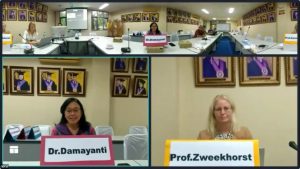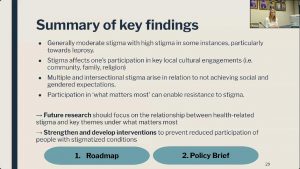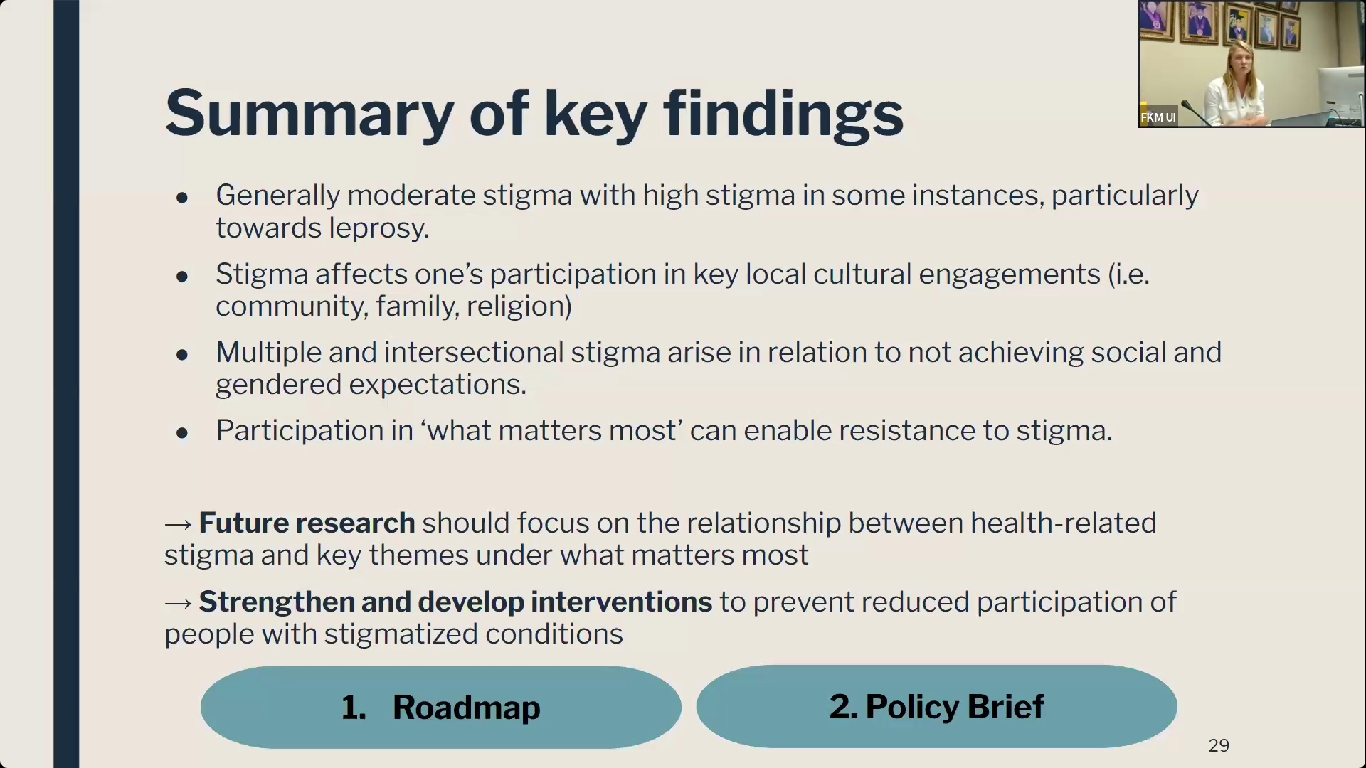
On October 11, 2023, the Faculty of Public Health (FPH) Universitas Indonesia (UI) held a hybrid seminar discussing a topic entitled “What Matters Most and Health-Related Stigma”. This seminar involved Indonesia, Nepal, and Nigeria to understand the dynamics of stigma and culture among communities with various diseases including depression, leprosy, and tuberculosis. Presenting prominent guests and speakers from various universities in the world, this seminar is expected to provide insight into the research and experiences carried out by the speakers. The aim of this seminar is to address the negative consequences of stigma faced by people with their illnesses, explore how cultural stigma can be combined in steps to assess and overcome stigma, and reduce depressive disorders in three countries.
A discussion regarding the impact and how stigma can be a barrier to seeking help for individuals suffering from mental disorders was presented by Prof. Lawrence H. Yang, Head of School of Global Public Health, New York University. Prof. Yang shared the results of his research which he first applied to Chinese immigrants in New York City with psychosis. Together with Prof. Arthur Climbin, Prof. Yang developed a theory and stated that stigma can interfere with a person’s ability to participate in daily activities.

There is a study designed by FPH UI, to explore cultural dynamics in Indonesia, Nigeria, Nepal, the United States, and the Netherlands. The aim is to understand what defines “full status” in a stigmatized society and how different positions can influence that status. The results show that marriage, children, and involvement in the community are three important points and greatly influence social status in these countries, and the existence of religious practices and personal integrity also show involvement in them.

Measuring stigma and its complexity is important. For this reason, research is needed regarding what methods are most widely used so that it is hoped that it can provide recommendations on how existing measurements can be modified and developed new modules according to the culture they have. Marlies Visser, a researcher from the Athena Institute, presented the project’s findings in a Roadmap and Policy Brief covering the moderate stigma attached to certain health conditions and its impact on community and religious activities.
Dr. Emeka Nwefoh, a medical director and senior researcher at the University of Nigeria, shares his experiences from a research project, including the challenges faced by those affected by leprosy in Nigeria. Together with him, FPH UI discussed the importance of counseling and education for health workers to increase awareness and fight stigmatization, especially for depressive disorders and leprosy, so it is important for this to be implemented.
Apart from Prof. Yang and Dr. Nwefoh, Prof. Madhusudan Subedi from Patan Academy of Health and Science Nepal, Dr. Ruth Peters from VU University Amsterdam, and Dr. Rita Damayanti, Dr. Dadun, R. Sutiawan, M.Sc., and Yoslien Sopamena, M.K.M., from FPH UI as resource persons. Prof. Marjolein Zweekhorst from VU University Amsterdam was also present as moderator at this seminar.
“It is an exciting opportunity to hold this seminar. The topic discussed is collaborative research carried out in Indonesia, Nigeria, and Nepal to understand the dynamics of stigma and culture that exist in communities with diseases such as depression, filariasis and leprosy. “Thank you to the resource person who was willing to share his knowledge and experience with students at FPH UI as well as participants who attended online through this seminar,” said the Dean of FPH UI, Prof. Dr. Mondastri Korib Sudaryo, M.S., D.Sc. (ITM/AAP)

